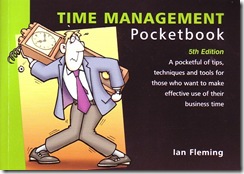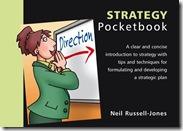I have just finished a ten year endeavour – reading all twenty of Patrick O’Brian’s Aubrey – Maturin novels, two a year. These are set in the time of Napoleon, among characters of Britain’s Royal Navy. Here, ‘Lucky’ Jack Aubrey is one of Nelson’s Band of Brothers – a fighting Captain sailing a fine frigate with a well-trained crew around the world, fighting for England. Stephen Maturin is his friend, his ship’s surgeon, a skilled naturalist and an intelligence officer for the Admiralty.

Captain Jack Aubrey (left, played by Russell Crowe) and Dr Stephen Maturin (right, played by Paul Bettany) in the Twentieth Century Fox film ‘Master and Commander: The Far Side of the World ’.
.
That’s enough of the ‘fan stuff’. If you are a fan, you know all of this – if you aren’t, you either don’t care, or will one day pick up the first book in the series, ‘Master and Commander’, and become hopelessly hooked.
By the way, the movie ‘Master and Commander
’ was subtitled ‘The Far Side Of The World
’ because it was most closely based on the tenth novel of that name.
Back to Management… and Leadership
There are too many models of leadership to name, but one of the commonest approaches is to consider how to combine and apply different leadership styles to a situation. These are sometimes called ‘contingency models’ or ‘situational models’. Whilst the best known are the trademarked and copyrighted models of situational leadership promoted by Paul Hersey and Kenneth Blanchard, they all track back to the earliest and possibly the best; that of Tannenbaum and Schmidt.
Attention to task and Attention to the person
All of these (and we could throw around names like Mouton & Blake, and Fiedler too) combine how much attention we give to getting the job done, focusing on facts and data; and how much we attend to the people concerned and our relationship with them. My worry is that these do not account for the extraordinary leadership O’Brian’s two characters show throughout over 6,000 pages of historically detailed and compelling novels.
Did Patrick O’Brian get it wrong?
This is a fair question, but I think we have to conclude not. Not only do the characters ring true to thousands (maybe millions) of readers, but Jack Aubrey at least is based closely on a real person, Lord Thomas Cochrane. Maybe, then, these models of leadership are missing something.
Arthur and Merlin, Watson and Holmes, Kirk and Spock
Captain Kirk is a fearless warrior, prepared to take on any odds in fighting for what he believes in. So are King Arthur, Dr Watson and Captain Aubrey. They mobilise their resources and use whatever skills, knowledge and power they have to protect what they value. Great leader are fighters, prepared to rally their followers and inspire them with their courage, persistence and, ultimately, sacrifice.
Sherlock Holmes, whilst equally fearless, stands for something creative, insightful and even mystical, in his mastery of the finest detail of his science. So too with Merlin, Mr Spock and Dr Maturin. People follow them, not because of their desire to fight, but because of the sacrifice they have made in mastering their science or their art. They are visionary and knowledgeable to a degree that inspires others to follow them.
Where are the task focused and
people focused leaders in fiction?
They are there, in the background, getting the job done and looking after the walk-on characters. Dr McCoy, Mrs Hudson, Guinevere, Killick, Pullings, Lancelot, Scotty, Lestrade. Often they are important characters in bringing balance, but they are not the ones who compel our attention. They are heroes in their own right, but are loved for their contribution to the whole story and their support of those who dominate.
So here’s the deal
Leadership has many dimensions: fighting for what you believe in, a passionate commitment to a body of knowledge or skills, a deep concern for people, a resolute determination to see a job through, and many more. Your model of leadership must focus on the style of leader you choose to be. Don’t accept someone else’s model uncritically – it may not work for you.
But also know that to really lead, you need a supporting cast of other heroes to support you or, from another point of view, you can lead without being a star, in a supporting role that brings balance and wholeness.
… and, if you haven’t already done so, go order a copy of ‘Master and Commander’, read it, become hopelessly hooked, and learn new ways to think about management and leadership.
Management Pocketbooks you might enjoy
The Leadership Pocketbook
– looks at a range of leadership styles
The Management Models Pocketbook
– describes Tannenbaum and Schmidt’s Leadership Continuum, and also John Adair’s Action Centred Leadership
The Motivation Pocketbook
– lots of ways a leader can motivate their followers
The Teambuilding Activities Pocketbook
– activities like sailing a 28 gun frigate into battle, exploring space in a starship, solving a brutal murder, and questing for the holy grail
… are strangely missing from an otherwise excellent selection!






